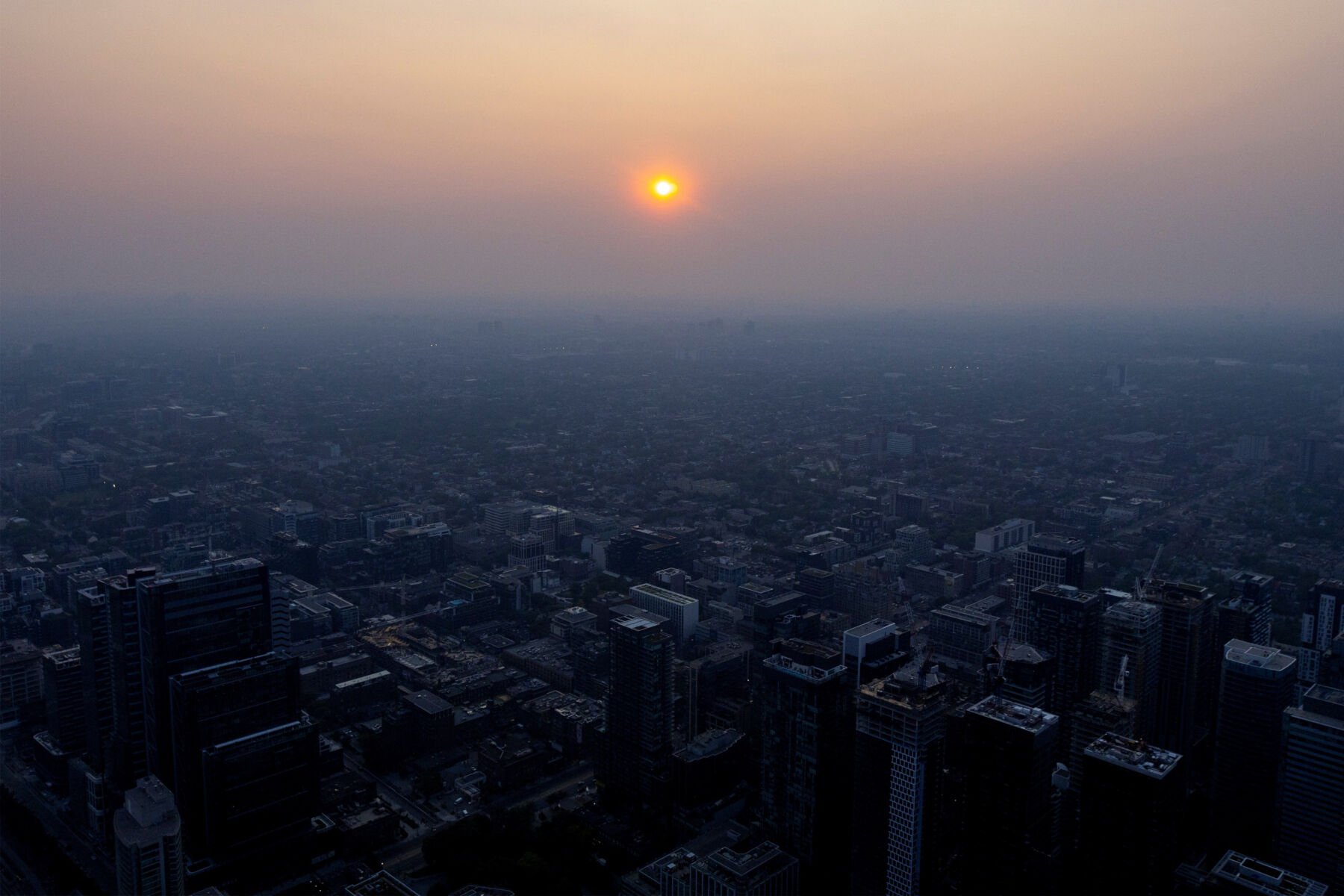Unprecedented wildfire season sparks concern across Canada

Canada is experiencing an unprecedented start to its 2023 wildfire season, with hundreds of fires raging across the country and forcing tens of thousands of people to evacuate. Over 3.8 million hectares have been scorched by the fires, which have also caused discoloured, smoke-filled skies in areas not typically affected by wildfires. This has prompted growing concern and demands for authorities to better prepare for a problem that is expected to worsen.
Caroline Brouillette, executive director of Climate Action Network Canada, said, “It does really bring home that the climate crisis is happening here and now.” Smoke from the fires has not only affected Canadian cities like Ottawa, Montreal, and Toronto, but has also reached as far as New York City and Washington, DC, causing air pollution advisories to be issued across the region.
Jill Baumgartner, an associate professor in the School of Population and Global Health at McGill University in Montreal, highlighted the health risks associated with wildfire smoke, which can cause short-term issues such as burning eyes and runny noses, as well as chronic heart and lung diseases. She emphasised the need to consider the longer-term impacts of wildfire smoke on health.
Over 400 wildfires are currently burning across Canada, with 239 considered out of control. Mike Flannigan, research chair for predictive services, emergency management and fire science at Thompson Rivers University in British Columbia, said climate change is largely responsible for the record wildfires. Higher temperatures have extended the wildfire season and increased lightning, which typically causes about half of all fires in the country. Flannigan warned, “We’re on a downward trajectory. Things are going to get worse and worse and worse.”
As the fires continue, Canada has deployed military support and sought assistance from other countries. The federal government has also announced investments in wildfire prevention programmes and training, as well as plans to launch a satellite system to monitor fires, smoke, and air quality. Prime Minister Justin Trudeau acknowledged the need for the country to continue its fight against climate change and lower emissions.
Environmental advocates are urging Canada to do more to tackle climate change, which is the primary cause of the global crisis and the increasing frequency and severity of wildfires. Salome Sane, a climate campaigner at Greenpeace Canada, stressed the importance of divesting from fossil fuels to address the root cause of the problem.
Latest Thailand News
Follow The Thaiger on Google News:


























